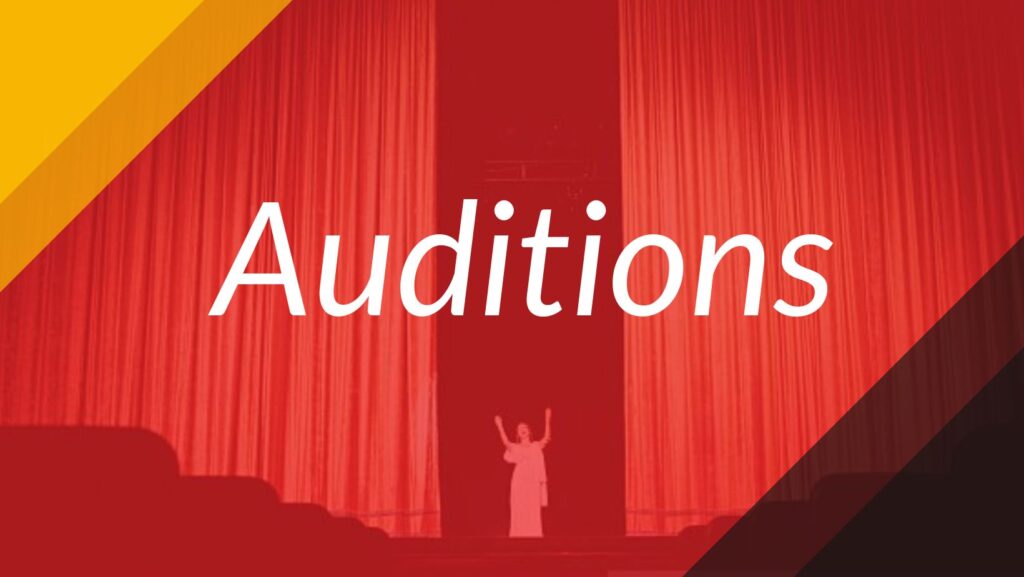
Knowing how to audition well, will remain a vital skill throughout your career. Knowing the specificities of the German audition circuit will only aid in your ability to make an impact in the German market. Read our top tips below and visit our Latest Posts page for the most current information to increase your knowledge on the intricacies of the German audition circuit. We want you to make the most out of your invested time, money and energy that it will take to present yourself on a German audition tour!
Auditons: Top Information & Tips
Audition “Season”: Audition season these days consists of two time periods…October to early December, and mid January to May, except for the time around Easter. Germany does have many holidays which vary in the different Bundesländer (like our States). You will need at least six weeks for an audition tour. However, we recommend to be available for an audition tour for three months, if you can afford it.
German Holidays: Auditions generally run from October to May but knowing the holiday schedules will make your audition tour much more cost effective. Your best bet for keeping track of all holidays and vacation times in the 16 Bundesländer is by visiting www.schulferien.org
Guest or Fest?: Theaters may be auditioning for a “Festvertrag” (salaried, one-three year contract) or a Guest or “Stuckvertrag” (an engagement for a particular production). They generally start looking for someone for a Festvertrag starting November, as by law their current employees have until the end of October to make a decision whether or not they will be leaving or staying in their current Festvertrag position.
When do theaters make offers?: The theaters get more serious about filling “die Vakanzen” (vacancies) in November and through the spring of the following year. Most theaters usually know what their upcoming season will be by March or April, and this is when they need to finalize filling their guest & fest contracts for the upcoming season, if they have not already cast their entire season yet. If you have gotten good feedback but no offer in the Fall audition season, be sure to stay in contact with the agent are working with & or theater you have auditioned for. Offers can go out in the fall, but many offers go out in the spring for the following season, and it can be a good time for getting cast.
What to sing: Unless you have been invited to audition with repertoire for a specific role, a “general audition” or “informative audition” in Germany will often require you to bring 4 arias (with often a request that one aria be a Mozart aria and one aria be in German). Most importantly, sing what you would perform NOW, not what you would sing 5 years down the road. Make sure your repertoire not only fits you vocally, but matches your temperament and physical attributes.
What to wear: In general opera stage auditions are much LESS FORMAL in Germany than in the United States. Opera in Germany is a well-known profession, and a part of normal life, not something formal or out of the ordinary.
- What you wear depends a great deal on what suits you and can range from casual to reasonably elegant. In some cases it depends on what Fach you are presenting yourself as.
- Mostly your clothes, like you, should look well cared for, attractive, flattering and something you CAN MOVE WELL IN. You will audition on sets with uneven floors, so make sure your shoes are pragmatic and will help you in those types of situations.
- Tips on your music: Make sure you music for your pianist is cleanly copied, tabbed & labeled. The easier your music is to read and “flip” through for your pianist, the smoother your audition will run.
- They are interested in your for a guest contract: this means they are interested in you for one specific role, plain and simple.
- They are interested in you for a long term Fest contract: they will probably ask you about a range of pieces they may want you to sing, and you’ll have to give them an idea of whether you’re alright with them. The main issues will be whether you think you can and should sing these pieces, how many productions they expect you to be in and what you and they see a few years down the line. Depending of your voice type you may have to decide whtether you’re willing to sing smaller parts which are in you Fach. Many Fächer contain kleine Partien, mittlere Partien, and große Partien. Mezzos and Basses in particular will probably have to sing many of the smaller roles. It comes with the vocal territory but can be very valuable for guesting and entree into important theaters. You’ll have to try to strike the balance between what you want to do and what you have to do. You can also always say that you need to talk to your agent or think it over.